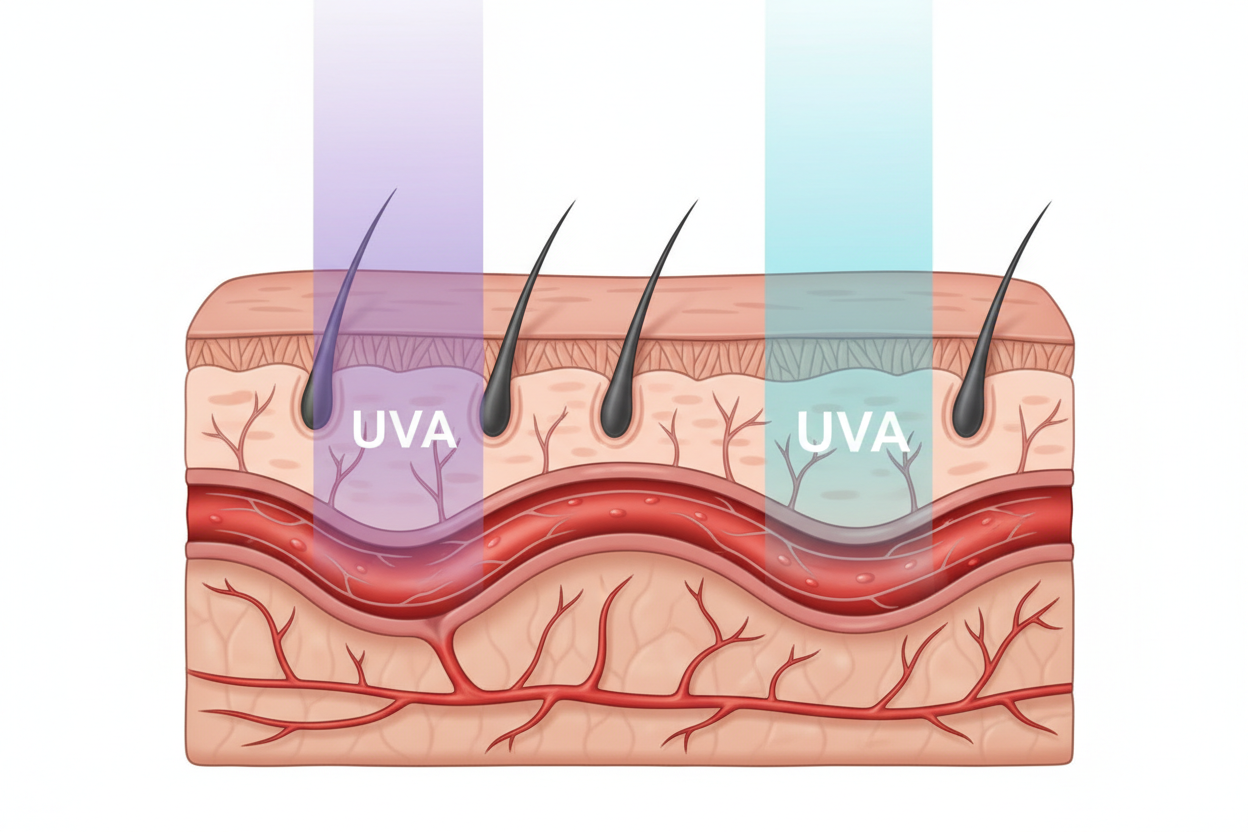The profound impact of sunlight on human health extends far beyond vitamin D synthesis and involves key cellular processes such as inflammation modulation, neurotransmitter production, and cell repair mechanisms. This article explains the complex interactions between sunlight, cellular redox states, melanin dynamics, and the regulation of the leptin signaling pathway in the skin, highlighting how natural light fundamentally influences biochemical pathways essential for maintaining health and preventing disease.
Introduction
The human body's dependence on sunlight goes beyond simple energy absorption and influences complex biochemical and physiological processes that maintain cellular function and overall health. Recent advances in understanding biosemiotic relationships in human physiology highlight the indispensable role of sunlight in modulating inflammation, affecting neurotransmitter pathways, and supporting the body's innate repair mechanisms. This synthesis aims to clarify the multifaceted impact of sunlight, particularly its role in regulating leptin and melanin, and the broader implications for treating chronic and psychiatric disorders.
Sunlight and the Dynamics of Cellular Inflammation
Proton shift and redox states
Exposure to sunlight affects cellular structures by modulating proton concentrations in cytosolic and mitochondrial compartments. This regulation helps maintain a high redox state, characterized by an excess of electrons that provide antioxidant properties and reduce inflammation. Specifically, sunlight decreases proton content in cytosolic water, increases negative charge density, and promotes an environment conducive to cellular resistance against oxidative stress.
Synthesis and degradation of melanin
The role of melanin in protecting against UV damage is well documented; however, its involvement in regulating neurotransmitters and inflammation is profound. UV light initiates melanin synthesis by cleaving POMC (proopiomelanocortin) in the skin and eyes. Conversely, without sufficient sunlight, melanin breaks down into quinolinic acid—a neurotoxic compound that disrupts cellular charge density and triggers mitochondrial dysfunction. This degradation pathway highlights the need for consistent sun exposure to prevent the shift toward pro-inflammatory states associated with chronic disease.
Tryptophan Metabolism and Photonic Influence
Derivatives of tryptophan, such as serotonin and melatonin, exhibit properties similar to "time crystals," meaning they display periodicity that aligns with solar photon cycles. This unique characteristic suggests that these molecules are not only involved in standard biochemical processes but also resonate with environmental light signals, influencing their biological functions in rhythm with sun exposure.
The Role of Leptin in Skin Physiology and Disease Modulation
Leptin synthesis in the skin
In addition to its traditional role in energy regulation, leptin is synthesized in skin cells, where it participates in significant regulatory activities. Leptin and its receptors, present in human epidermal cells, influence key processes such as cell proliferation, migration, immune responses, and tissue repair. The interaction between leptin and sunlight, especially through neuropsin – a light-sensitive enzyme – highlights a complex regulatory system where sunlight directly modulates leptin's effects on skin health and disease.
Photorepair: Sunlight as a Cellular Regenerative Mechanism
Photorepair, a cellular renewal process activated by specific UV-A wavelengths (380 nm), illustrates another critical pathway through which sunlight promotes health. This wavelength is optimal for melanin production and effective in repairing cellular damage, providing a natural, light-based therapy that enhances cellular vitality and function.
Sunlight plays an indispensable role in human health, influencing a wide range of biological functions that extend far beyond the surface of the skin. Its impact on inflammation, neurotransmitter regulation, and cell repair mechanisms provides compelling evidence for the therapeutic potential of natural light. Recognizing and harnessing this potential could lead to significant advances in the prevention and treatment of chronic and psychiatric disorders, promoting a health paradigm that integrates natural environmental factors into medical practice.
This text aims to integrate complex scientific discussions into an accessible narrative that highlights the critical importance of natural sunlight in regulating essential biological processes, advocating for a shift in how light exposure is perceived and utilized in the context of health and disease management.







1 comment
Dobrý den,mé dceři (46) byla před x lety diag.schizoafek.porucha, velmi mě zaujalo toto “červene svetlo”,asi 10 let zkoušíme alternativu- frekvence -zakoupily jsme plasmu,somavedic…..mohu poprosit o radu a info o vás?Moc děkuji Jež
Ivana Ježková
Leave a comment
This site is protected by hCaptcha and the hCaptcha Privacy Policy and Terms of Service apply.